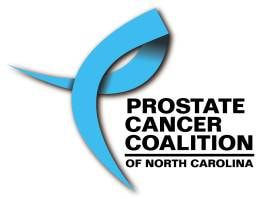Awareness
By working together, the citizens of North Carolina will see a day when prostate cancer is no longer a threat to the families of our state.
In North Carolina almost 8,000 men will be diagnosed with prostate cancer in 2024 and around 1,000 men will die of the disease. Begin exploring its impact on your county by clicking on the image below.
UNC Men's Health Program's Prostate Cancer Across North Carolina
Prostate Cancer Risk Factors
- High risk (>1.0 ng/ml) baseline PSA blood test in your 40s
- Family history
- Race/ethnicity
- Age
- Lifestyle
- Elevated PSA blood test, especially a significant rise in PSA number over time (velocity)
- Lumps or nodules on the prostate (found during a digital rectal exam)
- Difficulty starting urination.
- Weak or interrupted flow of urine.
- Urinating often, especially at night.
- Trouble emptying the bladder completely.
- Pain or burning during urination.
- Blood in the urine or semen.
- Pain in the back, hips, or pelvis that doesn't go away.
- Painful ejaculation.
Understanding Your Initial Results: the prostate-specific antigen (PSA) blood test*
*Your doctor should provide follow-up / next steps if your PSA is at an abnormal level. Your initial test -your baseline PSA- should be tracked over time as a quickly rising PSA can suggest the presence of cancer.




